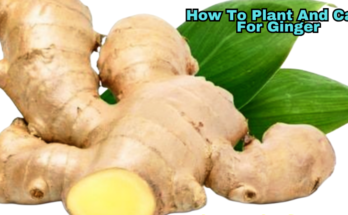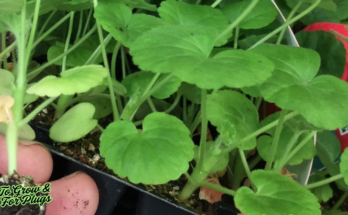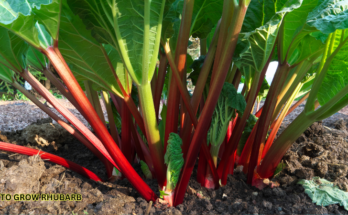What is the best compost for A vegetable garden. Choosing the right compost is essential for a thriving garden. The best compost provides nutrients and promotes healthy plant growth.
I’ve found that organic compost is often the most effective. It’s packed with essential minerals and beneficial microbes. You can create it at home or buy it from stores.
I prefer compost made from kitchen scraps, yard waste, and plant matter. It’s eco-friendly and improves soil structure. For a vegetable garden, look for a mix with good moisture retention.
Make sure it’s well-rotted, as fresh compost can burn plants. High-quality compost is key for rich, productive soil. Always check the label for organic certification.
With the right compost, your vegetables will grow strong and healthy. In this blog, I’ll guide you on how to select the best compost for your vegetable garden. Let’s dig in!
What Is The Best Compost For A Vegetable Garden?
The best compost for a vegetable garden is organic compost. It enriches the soil and improves drainage. I recommend using well-rotted compost. Compost made from kitchen scraps works great.
It is rich in nutrients and eco-friendly. Avoid composting with chemicals or fresh manure. I also prefer compost with good moisture retention. A balanced mix of green and brown materials is ideal.
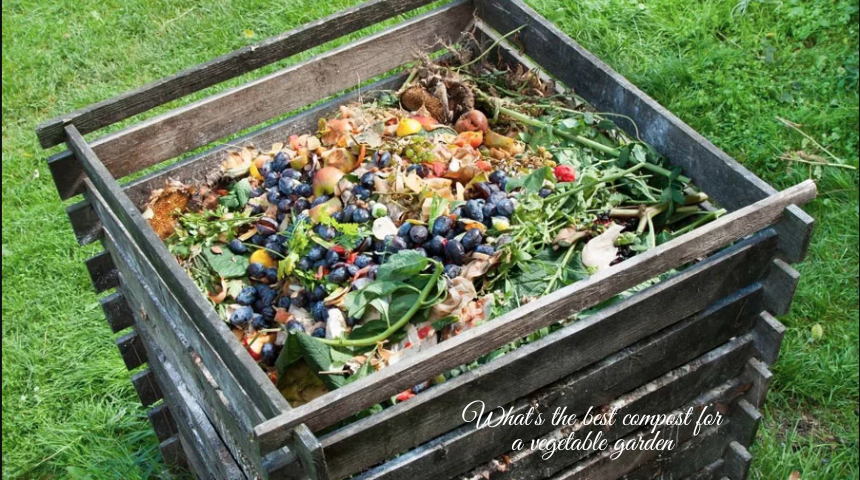
Look for compost with a dark, crumbly texture. It should smell earthy, not sour. Using the right compost leads to healthy, productive plants.
What Is Compost?
Compost is a decomposed organic material that nourishes the soil. It’s a natural fertilizer from kitchen scraps, yard waste, and other biodegradable items.
Compost enhances soil health by providing nutrients, improving water retention, and promoting microbial activity. It’s a gardener’s secret weapon for thriving plants.
Think of compost as a superfood for your garden. By breaking down organic matter, compost creates a nutrient-rich material that improves soil texture and boosts its fertility.
It’s also an eco-friendly way to recycle waste and reduce landfill use. Whether you’re new to gardening or a seasoned expert, understanding compost is key to growing a lush, productive vegetable garden.
Types Of Compost
Homemade Compost
Homemade compost is created using items like fruit peels, vegetable scraps, and dry leaves.
It’s budget-friendly, eco-friendly, and allows you to control the ingredients. I find that making my compost ensures it’s free of harmful chemicals.
Making your own compost is easier than you might think. Start with a balance of greens (nitrogen-rich materials like vegetable scraps) and browns (carbon-rich items like dried leaves).
Layer these in a bin or pile, turn it regularly, and maintain moisture. In a few months, you’ll have rich, dark compost ready to nourish your garden.
Store-Bought Compost
Store-bought compost is pre-made and convenient. It comes in various types, including organic and non-organic. Look for compost that’s certified organic, as it’s free of synthetic additives. Read the label carefully to ensure it suits your garden’s needs.
While homemade compost is rewarding, store-bought options save time and effort.
They’re especially useful for larger gardens. when you’re just starting. When choosing store-bought compost, opt for well-known brands.
And look for labels indicating the mix is suitable for vegetables. This ensures you’re giving your plants the nutrients they need.
Qualities Of The Best Compost For Vegetables
The best compost for vegetables has specific qualities:
Nutrient Content: Rich in nitrogen, phosphorus, and potassium to support plant growth.
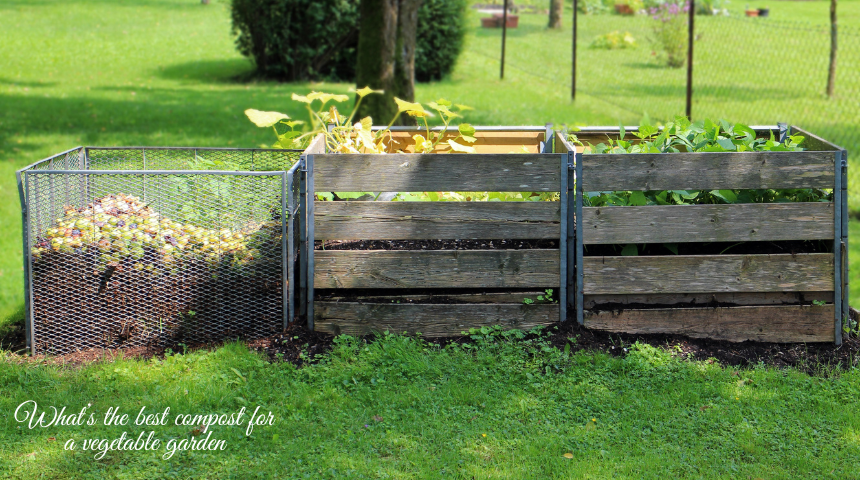
Texture: Should be dark, crumbly, and easy to spread.
Smell: A good compost smells earthy, not sour or rotten.
Moisture Retention: Helps the soil hold water without becoming waterlogged.
These qualities are non-negotiable for healthy vegetable growth. A nutrient-rich compost acts as a slow-release fertilizer, feeding plants over time.
The crumbly texture allows for easy mixing into soil, while good moisture retention prevents roots from drying out. Always inspect compost before use to ensure it meets these standards.
How To Choose The Right Compost For Your Garden
When selecting compost, consider your soil type and the vegetables you grow. Sandy soil benefits from compost that retains moisture, while clay soil needs compost that improves drainage.
For vegetables, a nutrient-rich compost with a balance of greens (nitrogen-rich) and browns (carbon-rich) is ideal. Test small amounts in your garden to see how your plants respond.
Every garden is unique, so understanding your soil’s needs is essential. If your soil is sandy, compost with high organic matter helps retain water and nutrients.
For clay soil, look for lighter compost blends that improve aeration. Keep in mind the specific requirements of vegetables like tomatoes,
which thrive in compost with high potassium levels, or leafy greens, which prefer nitrogen-rich compost.
Homemade Vs. Store-Bought: Which Is Better?
Homemade Compost Pros:
1. Cost-effective and customizable.
2. Reduces kitchen and garden waste.
Homemade Compost Cons:
1. Takes time and effort to make.
2. Requires space and regular maintenance.
Store-Bought Compost Pros:
1. Ready to use and time-saving.
2. Often enriched with nutrients.
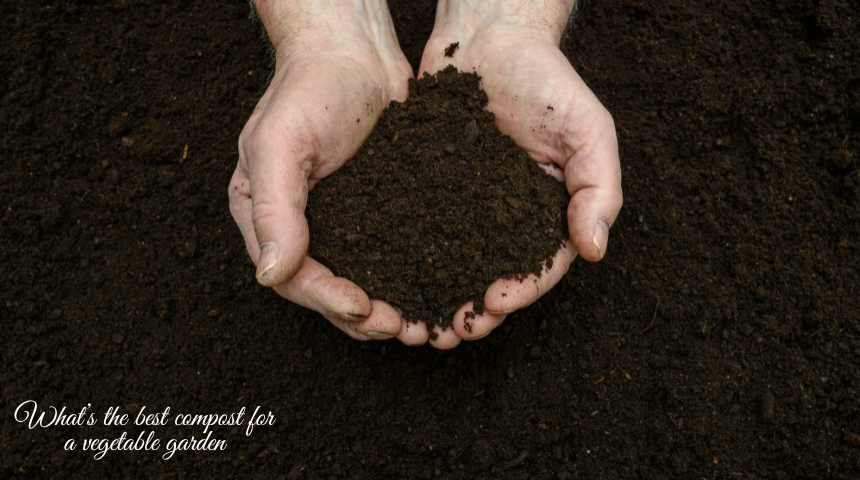
Store-Bought Compost Cons:
1. Can be expensive.
2. Quality varies; some may contain fillers or chemicals.
I believe both have their place. Homemade compost works well for small gardens, while store-bought options are great for larger areas or when you’re short on time.
Homemade compost connects you to the gardening process, allowing you to recycle and repurpose waste.
However, store-bought compost can be a lifesaver during busy seasons or for large-scale projects. I’ve found that combining both often yields the best results.
Common Mistakes To Avoid
1. Using Fresh Compost: Fresh compost can burn plant roots. Always use well-rotted compost.
2. Unbalanced Materials: Too much green or brown material affects decomposition. Use a mix.
3. Skipping Aeration: Compost piles need turning to decompose properly.
4. Ignoring Moisture Levels: Too dry or too wet compost slows down the process. Keep it damp, like a wrung-out sponge.
Avoiding these mistakes ensures your compost is effective and safe for plants. Fresh compost, for example, contains high ammonia levels that harm roots.
Aerating your pile regularly helps speed up decomposition and prevents unpleasant odors. Always monitor the pile’s moisture level to keep the composting process on track.
Additional Tips For Successful Composting
Layering: Alternate layers of greens and browns for balanced decomposition.
Temperature Check: A hot compost pile decomposes faster. Aim for a temperature of 135-160°F.
Compost Bins: Use a bin to keep the process tidy and manageable.
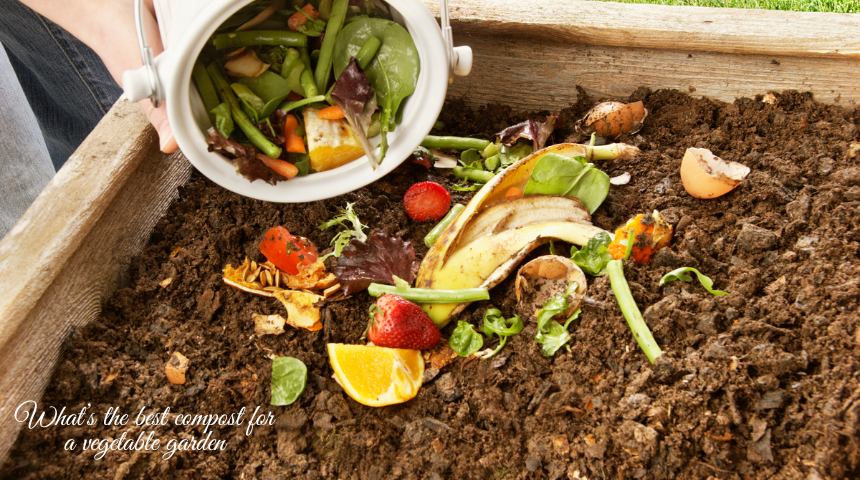
With these tips, creating and using compost becomes simple and effective.
FAQ
Can I use compost with manure?
Yes, but it must be well-rotted. Fresh manure can harm plants. Manure-based compost is nutrient-dense, making it excellent for vegetable gardens.
However, always ensure it has been properly aged to avoid high nitrogen levels that can damage plants.
How often should I add compost to my garden?
Add compost once or twice a year, typically before planting and after harvest.
Regular composting keeps your soil fertile year-round. Applying it in early spring prepares the soil for planting, while a post-harvest addition replenishes nutrients.
Conclusion
The best compost for a vegetable garden is rich, well-rotted, and nutrient-packed. Whether you make it at home or buy it from a store, choose compost that meets your garden’s needs.
Healthy soil leads to healthy vegetables, and the right compost is your first step. Start experimenting today and watch your garden thrive!

